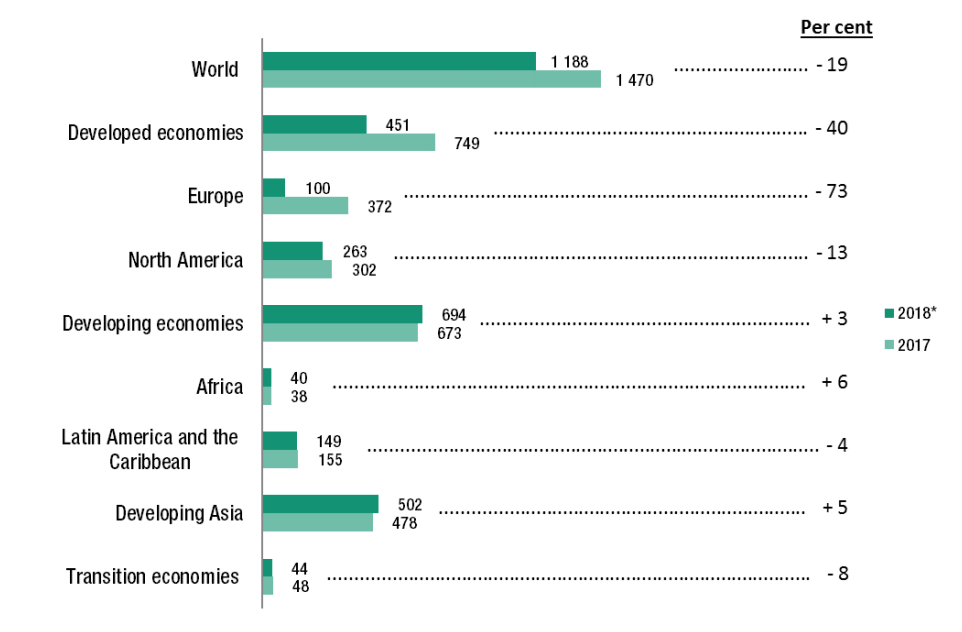Nigeria’s Anglophone brother Ghana has overtaken Nigeria as the largest recipient of foreign direct investment (FDI) in Africa.
The drop in Nigeria’s share of FDI could be attributable to different macroeconomic environment coupled with severe recessions through 2016 and into 2017.
The UN Conference on Trade and Development (UNCTAD) Global Investment Trends Monitor Report released on Monday, said “Nigeria, Africa’s largest economy and top oil producer saw FDI drop 36 percent to $2.2 billion in 2018. This decline saw Ghana overtake Nigeria as country with the highest FDI in West Africa, recording an inflow of $3.3 billion. While some policy decisions have been blamed for Nigeria’s poor FDI inflow in 2018, UNCTAD expects 2019 to be better for the country, especially due to some significant Greenfield project announcement in the oil and gas industry.”
It also stated that “Africa registered a 6% increase in FDI inflows in 2018 (US$40billion, up from a revised US$38 billion in 2017), but the growth was concentrated in few economies and the aimed for the shift from the natural resources dominated FDI profile of the continent towards a more balanced sectoral distribution was only partially visible, in that the relatively diversified economies, such as Egypt and South Africa, saw more stable and increasing FDI inflows,”

Foreign Direct Investment per region, 2018 compared to 2017 (Screenshot, UNCTAD)
Egypt, where recent economic reforms have led to improved growth, was Africa’s biggest recipient of FDI in 2018, recording an inflow of $7.9 billion, a 7 percent increase over the $7.4 billion recorded a year earlier. According to UNCTAD, investment inflow was in real estate, food processing, oil and gas exploration and renewable energy.
FDI inflow into South Africa had fallen since 2014, but it recovered in 2018, with large investments in mining, food processing, petroleum refining, information and communications technology, as well as renewable energy. Thus, South Africa received FDI amounting to $7.1 billion in 2018 from $1.3 billion in 2017.
Ethiopia, despite its 24 percent fall in investments to $3.1 billion, maintained its top rank in East Africa with investments in petroleum refining, mineral extraction, real estate, manufacturing and renewable energy.
UNCTAD concludes that progress in the implementation of the Africa Continental Free Trade Agreement (ACFTA), diversification in Greenfield projects targeting the manufacturing sector and the stabilization of commodity prices show that FDI in Africa could potentially grow in 2019 at a higher pace than the 6 percent recorded in 2018.


